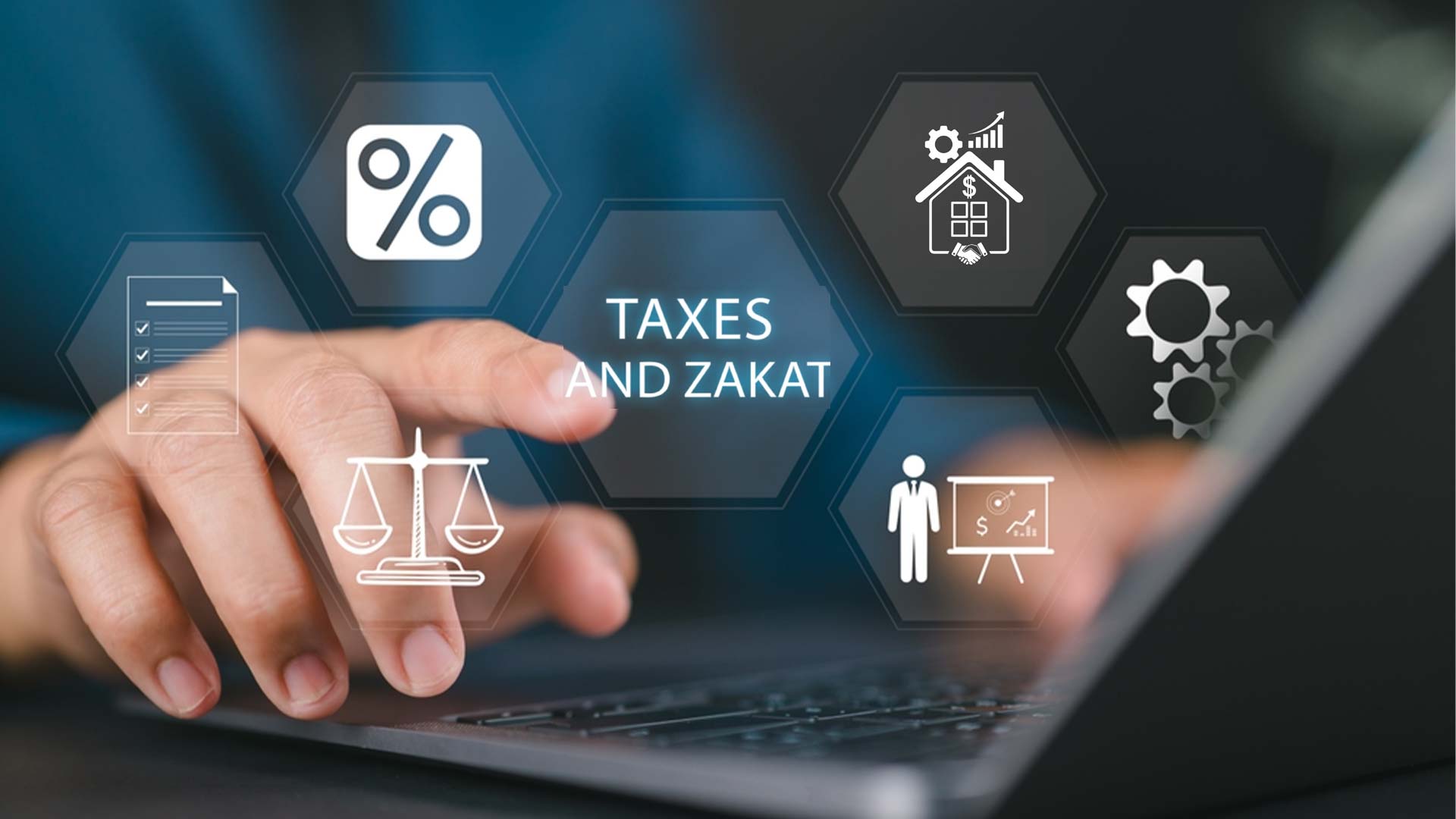The impact of zakat and tax accounting goes beyond simply applying regulations for companies. Its influence extends to building stronger investor confidence, especially for those seeking a stable business environment. In addition, companies must provide clear financial statements, stay committed to filing the tax return, comply with income tax in Saudi Arabia, and register for the value-added tax. At Al-Hamli & Partners, with our expertise in the different types of taxes in Saudi Arabia, we help you understand and apply the laws efficiently, avoiding risks or penalties.
Why Does Your Company Need Experts in Zakat and Tax Accounting?
Relying on specialists in tax and zakat services, such as Al-Hamli & Partners, saves you considerable time and effort. Our professional team handles tasks related to the system of taxes in Saudi Arabia, from submitting the tax return to registering for value-added tax. These comprehensive services guarantee full compliance with both international and local standards, without any hassle.
Depending on experts in zakat and tax accounting is no longer a luxury or a secondary option. Here are the most important reasons:
- The diversity of taxes in Saudi Arabia, such as the income tax system and the value-added tax system, requires a qualified specialist, whether an accredited legal accountant or a trusted accounting firm like Al-Hamli & Partners, to master every detail of taxation and calculation methods.
- Preserving the company’s financial stability and ensuring sustainable growth over the long term, free of risks or unexpected issues.
- Possessing the knowledge and expertise to handle all detailed requirements, especially when registering for value-added tax for individuals and companies, and when submitting the tax return.
How Does Income Tax in Saudi Arabia Affect Companies and Individuals?
First, it’s essential to understand that the income tax system imposes a specific percentage on foreign and non-Saudi companies and institutions. This highlights the need for these businesses to understand the types of taxes in Saudi Arabia and to apply them precisely, using tools such as a value-added tax calculator and accurate tax return submissions.
As for zakat and taxes, they are imposed on Saudi local establishments in accordance with Islamic Sharia. We can therefore say that income tax is one of the most important Saudi government funding tools. It supports the national economy and achieves the Kingdom’s Vision 2030, balancing tax justice with attracting investment. The effect of income tax is also reflected indirectly on Saudi individuals through the prices of goods and services subject to the value-added tax system.
We provide comprehensive consulting services in accounting, zakat, and taxes, as well as preparing (tax returns to ensure full compliance. For more information about our services, feel free to contact us at 0539300404.
Key Updates on Income Tax in Saudi Arabia for 2025
In 2025, Saudi Arabia witnessed several updates regarding (income tax), affecting both companies and individuals. The most notable developments include:
- The issuance of new drafts for the income tax law and the tax and zakat procedures system for public consultation. The aim is to modernize the system, improve transparency, and unify zakat and tax procedures under a single mechanism.
- The Zakat, Tax and Customs Authority announced an extension of the initiative to exempt from fines and penalties related to late registration, late filing of the tax return, or delayed tax payment, extended until December 31, 2025. This extension covers income taxes as well as value-added tax and other taxes, providing companies and individuals an opportunity to comply without incurring large financial penalties.
- Amendments to the value-added tax system were published in the Official Gazette on April 18, 2025, including changes to several provisions such as the conditions for transferring economic activity and the rules for VAT refunds to foreigners and visitors.
Also Read:
- Your guide to choosing the best office of chartered accountants and auditors in Saudi Arabia
- Why Do Large Companies Rely on Accounting Firms in Riyadh?
- Discover the Duties of a Financial Accountant and Their Importance in the Saudi Market
- Management Consulting Services to Support Your Goals with Abdullah Al-Hamli & Partners
- Financial Statements for Companies as the Mirror of Performance and the Basis of Investment Decisions
- An Effective Feasibility Study Method to Help You Make Smart Investment Choices
Managing Zakat and Tax Accounting Smartly with Experts at Al-Hamli & Partners
Managing zakat and tax accounting is a key element to ensure full compliance with financial regulations, maintain company financial stability, and avoid penalties or risks, while enhancing investor confidence.
This is where our role at Al-Hamli & Partners comes in, as experts in zakat and tax accounting and all related services, including:
Calculating zakat obligations.
Managing corporate income tax.
Registering under the value-added tax system.
Preparing financial statements to simplify the submission of the tax return, whether monthly or quarterly, on time.
We also provide financial consulting and answer all client inquiries with a team of certified accountants and auditors who understand the types of taxes in Saudi Arabia and both local and international regulations. All these services and more are designed to protect your business, achieve balance and long-term stability, foster sustainable growth in the Saudi market, elevate financial transparency, and boost investor trust. For more information about our services, feel free to contact us at 0539300404.
Conclusion:
Choosing a trusted partner like Abdullah Al-Hamli & Partners to manage all your company’s financial affairs, especially zakat and tax accounting, income tax in Saudi Arabia, and the value-added tax system with precise and professional calculations, saves you significant time and effort. It also frees you to focus on the company’s goals and on sustaining growth and stability in the highly competitive Saudi market. Thanks to our experience and the expertise of our certified accountants and auditors in all types of taxes in Saudi Arabia, we provide carefully studied solutions and tailored economic strategies to deliver the best results and improve the financial performance of your company.
Common Questions:
What is the difference between zakat and tax in the Saudi system?
In Saudi Arabia, zakat is imposed on the profits of Saudi and Gulf companies according to Islamic Sharia, while taxes, such as the income tax system and the value-added tax system, are imposed on non-Saudis, foreign companies, and certain commercial and service transactions.
What are the steps to register for value-added tax for companies?
Registration for value-added tax is done through the website of the Zakat, Tax and Customs Authority. Create an account for the establishment, enter the financial and commercial data, complete the VAT registration form, and obtain an official registration certificate. For more information, contact us at 0539300404.
How does the value-added tax system work and what are its key provisions?
The value-added tax system in Saudi Arabia imposes a specific percentage usually 15% on taxable goods and services. Companies can use a value-added tax calculator to calculate VAT accurately and submit the tax return on schedule.
What is the difference between filing a monthly and a quarterly tax return?
The monthly tax return is generally required from large companies with high revenues, while the quarterly tax return is designed for small and medium-sized businesses. The aim is to ensure the tax return is filed at appropriate intervals according to business size. For more information, contact us at 0539300404.



